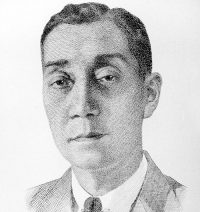Warnings have been issued by the Commander of the Japanese Landing Forces.
(1) Anyone who inflicts or attempts to inflict an injury upon Japanese soldiers or individuals shall be shot to death.
(2) If the assailant or attempted assailant cannot be found, we will hold ten influential persons as hostages who live in and about the streets or municipalities where the event happened.
(3) Officials and influential persons shall pass this warning on to your citizens and villages as soon as possible and should prevent these crimes before they happen on your own responsibilities.
(4) The Filipinos should understand our real intentions and should work together with us to maintain public peace and order in the Philippines.
Reign of terror! The law of the gun! People avoid Japanese soldiers in the streets. Everybody is afraid. When you pass a Japanese sentry, you must bow. A man was slapped for not bowing. Others have been tied to posts and made to look at the sun for hours. A man stealing a can of milk from a parked Japanese truck was bayoneted to death. Saw a naked woman bound to a post. She was quite young. There were many onlookers.
Had an important meeting with high ranking Japanese officers at the Army and Navy Club this afternoon. The food situation, particularly rice, was discussed. Present were Col. Masaki, who was apparently the ranking officer; Lt. Col. Yoshida, supply officer; Mr. Mori, manager of the Daido; Yamamoto, manager of the Yokohama Specie Bank; Murasse of the Oracca Candies; Kitajima of the Kinkwa Textile Company; Mitsuda, manager of the Bank of Taiwan and C. Mori, head of the Nang Prostoa. The Filipinos were Gregorio Anonas of the NDC, Jacinto, Villamin, Sabalvaro, Melo and myself.
Discussions mainly centered around the problem of rice distribution. NARIC would distribute rice to dealers in 12 public markets within Greater Manila for sale to the public. Purchasers would be required to first present their residence certificates. The selling price to the public was fixed at P.15 for one-half ganta. The price to rice dealers would be at P6.20 each cavan. Japanese soldiers were to be posted in the 12 markets to insure order. War notes (military money) have been issued by the Imperial Japanese Government. The proclamation of the Commander-in-Chief says that the military notes are backed by the Japanese Government. The death penalty will be imposed on anyone “who attempts to interfere with the circulation of the war notes such as deeds of rejection of payment, forgery or spreading false news regarding the war notes.” I am afraid the printing of this money will cause inflation in the not-too-distant future. The days of “a wheelbarrow of marks for a loaf of bread” may yet come.
Five truckloads of Japanese dead, covered with vegetables, passed by Santa Mesa this afternoon at a little after sunset. There must be stiff fighting in Bataan.
More Japanese troops have arrived in the city. It is their convoy that keeps on arriving.
More people go to churches these days. There are a lot of marriages too.
In a small side-door, ironically near Quiapo Church, many soldiers go in and out. It is a flourishing business.
